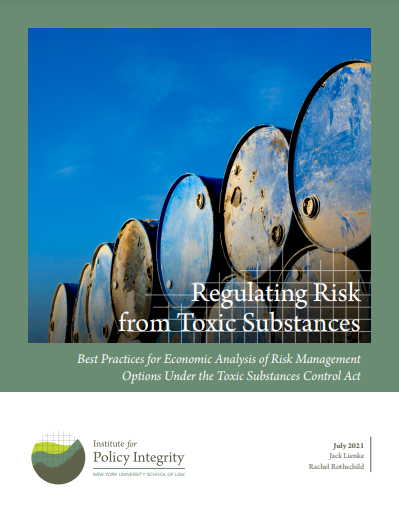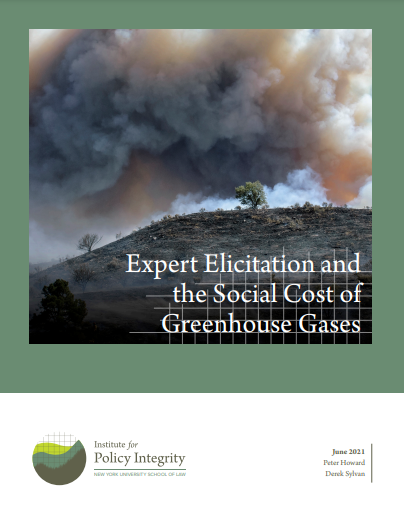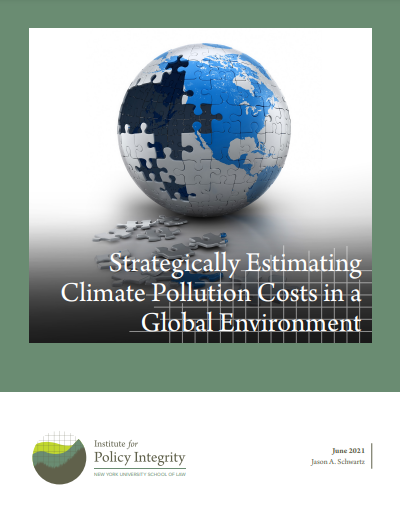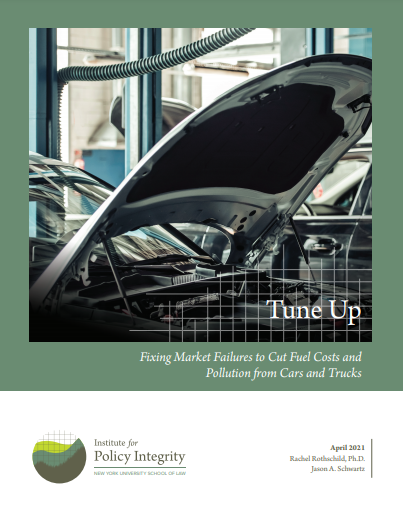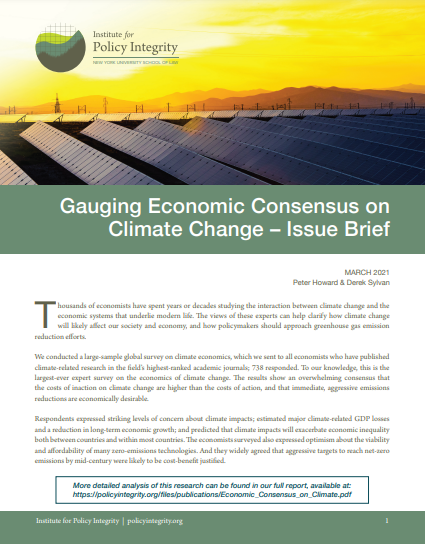-
Regulating Risk from Toxic Substances
Best Practices for Economic Analysis of Risk Management Options Under the Toxic Substances Control Act
This report identifies best practices EPA should adopt to holistically assess and weigh the costs and benefits of risk management options, allowing the agency to meet its statutory obligations and best enhance public welfare.
-
Expert Elicitation and the Social Cost of Greenhouse Gases
The Interagency Working Group on the Social Cost of Greenhouse Gases can use the findings from expert elicitations to improve the U.S. federal government’s social cost of greenhouse gas estimates, which are used in regulatory cost-benefit analysis and other policy contexts. Our report highlights several component updates, incorporating data from expert elicitations, that the Working Group should consider during its current update of the social cost of greenhouse gas estimates.
-
Strategically Estimating Climate Pollution Costs in a Global Environment
Debate has reemerged about whether federal agencies’ policy analyses should focus on those climate pollution costs that will occur only within U.S. borders, rather than on the full global valuation of climate damages. The Interagency Working Group on the Social Cost of Greenhouse Gases provides compelling justifications to focus on global estimates. Based on a wide range available evidence, the Working Group should consider recommending a domestic valuation of at least 75% or more of the global values for optional use as a lower-bound estimate in sensitivity analysis.
-
Tune Up
Fixing Market Failures to Cut Fuel Costs and Pollution from Cars and Trucks
This report analyzes a key issue in U.S. transportation policy: the energy efficiency gap. We discuss the market failures that cause it, and recommend that the Biden administration continue the longstanding practice of incorporating private fuel savings in any evaluation of the costs and benefits of stronger standards for cars and trucks.
-
Gauging Economic Consensus on Climate Change – Issue Brief
We conducted a large-sample global survey on climate economics, which we sent to all economists who have published climate-related research in the field’s highest-ranked academic journals; 738 responded. To our knowledge, this is the largest-ever expert survey on the economics of climate change. The results show an overwhelming consensus that the costs of inaction on climate change are higher than the costs of action, and that immediate, aggressive emissions reductions are economically desirable.
This Issue Brief highlights key takeaways from the survey. A more detailed report is available here.
Viewing all publications in Reports

